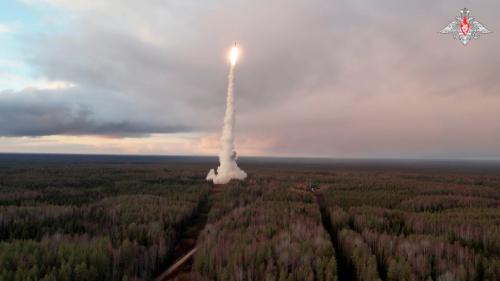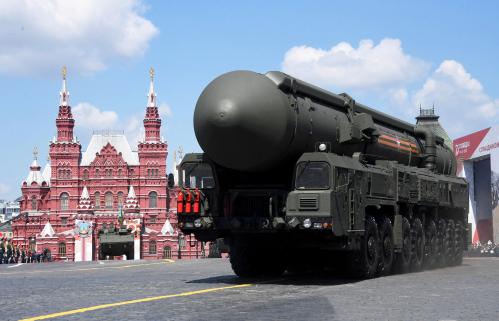This week, the speeches of Hassan Rouhani and Barack Obama at the United Nations General Assembly (UNGA) – and the prospects of a meeting between the two of them – dominated the Iranian press. Reactions to Rouhani’s speech were largely positive across the Iranian media. Reformists may have been hoping for a bolder move for diplomacy in his words, but were satisfied with a speech so different in tone to those given by Mahmoud Ahmadinejad at the UN over the years. Reformist analyst and professor Sadegh Zibakalam suggested in Etemaad that Rouhani held back in order to avoid causing conflict with hardliners in Iran. “Rouhani could have said things that would have made Iranians ecstatic…but he knew that hardliner Principlists at home in Tehran were listening to his words, waiting to target him with their attacks and criticisms, and thus he had no choice but to proceed cautiously.” Indeed, Rouhani’s speech was largely lauded by conservatives, as he tempered his push for diplomacy with messages of righteous defiance of Western aggression. In the conservative Khorasan, Kourosh Shojaee praised Rouhani’s defense of Iranian interests, noting, “The natural, legal, and incontrovertible right of the Iranian people to uranium enrichment technology and the peaceful use of nuclear energy was defended with notable tact and precision by Dr. Rouhani at the United Nations.”
Some Iranians took heart from President Obama’s speech, in which he assured them that America was not seeking regime change in Iran, expressed some hope for a diplomatic resolution, and spoke of their plight as a victim of chemical weapons attacks during the Iran-Iraq War. Former foreign ministry official Sadegh Kharrazi wrote in the reformist Etemaad that Obama’s expression of “understanding of the political system and power structure in Iran, respect for the fatwa [against nuclear weapons] by the supreme leader, the phenomenon of the government’s change and the informed choice of the Iranian people…and Iran’s right to peaceful nuclear technology are all good starting points.” Although he wondered if it was solely because Obama feared repeating the fate of Jimmy Carter – brought down largely due to failures with Iran – Ali Vadaye wrote in the reformist Mardom Salari, “It was as if a miracle happened yesterday in New York. Without going to extremes about the White House’s positions, yesterday Obama accepted the legitimacy of the Iranian nation and this means a step forward.”
Hardliners largely had different views of Obama’s remarks. In the conservative Javan, Abbas Hajji-Najjari wrote, “Obama’s statement that America is not seeking regime change in Iran and that it respects Iran’s right to nuclear energy is solely due to the frustration and failure of America’s policies against Iran and its inability to counter Iran’s strategy in the region…” Some accused Obama of dishonesty in his speech. Even though, wrote Saadollah Zarei in Kayhan, Obama made a major point of mentioning the supreme leader’s fatwa against nuclear weapons, “The American president once again in a confident tone condemned Iran, as he has before, claiming that it is seeking to acquire the atomic bomb.” Some conservatives, while expressing skepticism, welcomed the change in tone if it will be backed up by action. In Resalat, Mohammad Kazem Anbarlui wrote, “It must be seen what steps he will take to prove his assertion. If nothing is done to remove sanctions and threats, this will still only be a change in rhetoric.”
Some reformists expressed disappointment that more progress was not made toward improving relations with America. In Arman, Davoud Hermidas Bavand was unhappy that there was no face-to-face meeting between Obama and Rouhani, and suggested the decision to skip the much-hyped luncheon where the two presidents may have crossed paths – officially due to the presence of alcohol – was a poor one. “At this event, there were halal beverages available in addition to alcoholic drinks, and the Iranian delegation could have had a better approach to this problem.” Others thought the mission of Rouhani’s trip to New York was accomplished, however. In Shargh, Amir Mohebbian wrote, “A possible meeting between Obama and Rouhani, or handshakes and chats should not be considered so important…The fact is that the United States Government is eager to negotiate with Iran due to the conditions in the region.”
APPENDIX: Translated Summaries of Selected Opinion Pieces (Newest to Oldest)
“The Americans and the Issue of Regime Change in Iran.” Mohammad Kazem Anbarlui, Resalat, 4 Mehr 1392 / 26 September 2013.
In the conservative daily Resalat, Anbarlui writes that Obama’s address at UNGA was notable for the change in rhetoric, but that America’s history of fighting secretly and openly against the government of the Islamic Republic of Iran means that more than words are necessary for there to be a real change in the relationship between Tehran and Washington. “Obama’s speech at the 68th session of the UNGA was different from the prior speeches of presidents over the past three decades, and even from his own. This speech told the story of a change in tone. The American president’s speech included important phrases too numerous to mention in full in one article. But one in particular was ‘we are not seeking regime change’ in Iran. This is the first time that the Americans have spoken like this, because for the past three decades they have been guilty of conspiring to overthrow the legal democratic government of the Iranian nation, and still are.” He goes on to cite a litany of grievances that Iran has against the United States for interfering in its affairs, dating back to the 1953 coup but focusing on post-revolutionary events, such as supposed support for the Mojahedin-e Khalq as it assassinated an early president and prime minister of the Islamic Republic and support for Saddam Hussein during the Iran-Iraq War. He also asks, “If crippling sanctions aren’t for the purpose of regime change, then what are they for?” However, he gives Obama a chance to back up his historic words: “It must be seen what steps he will take to prove his assertion. If nothing is done to remove sanctions and threats, this will still only be a change in rhetoric.”
“Not as Much as We Wanted, But as Much as Was Possible.” Sadegh Zibakalam, Etemaad, 4 Mehr 1392 / 26 September 2013.
Zibakalam writes in the reformist Etemaad that he had been hoping for a bolder, more memorable speech from President Rouhani, but that it was clear from the president’s balance of diplomatic language and fierce defiance of Western powers that he was tailoring his words to avoid trouble from hardliners at home. “Rouhani could have said things that would have made Iranians ecstatic…but he knew that hardliner Principlists at home in Tehran were listening to his words, waiting to target him with their attacks and criticisms, and thus he had no choice but to proceed cautiously.” He emphasizes, “If he had been very bold, he no doubt would have made many people inside and outside the country very happy. But on the other hand, he had to return home to face the Principlists.” On the whole, Zibakalam writes, Rouhani did as well as he could to push for a diplomatic path given the political constraints on him. He writes that some lessons from Rouhani’s trip to New York are that the president acted with the authority of someone who knows he has been endowed with support by the supreme leader, and that he knows the process of resolving Iran’s problems with America will take a long time and cannot be solved overnight – hence his incremental shift toward diplomacy.
“The Master Key of Dr. Rouhani’s Statements at the United Nations.” Kourosh Shojaee, Khorasan, 4 Mehr 1392 / 26 September 2013.
In the conservative daily Khorasan, Kourosh Shojaee gives the speech of Hassan Rouhani rave reviews. The paper also praises the delivery and clarity of the president’s speech, indicating that there can be no objections to the messages he conveyed: “The accuracy and fair reflection in the statements and opinions of the esteemed president were such that they will not inspire results different from his words,” he writes, before going on to praise “His exact, logical, strong, dignified, and principled statements and opinions at the UN General Assembly…” He is praised for not selling out any of Iran’s interests in his speech, and his defiance, aided by a logical tone, is seen as the defense that Iran needs. “The natural, legal, and incontrovertible right of the Iranian people to uranium enrichment technology and the peaceful use of nuclear energy was defended with notable tact and precision by Dr. Rouhani at the United Nations.” The author goes on to say that Rouhani’s arguments challenging Obama to ignore the pressure of “warmongering groups” in crafting his policy will leave the American president no choice but to pursue tangible steps to improve American behavior.
“A Look at Obama’s Positions on Iran.” Saadollah Zarei, Kayhan, 4 Mehr 1392 / 26 September 2013.
In the hardline Kayhan, Zarei writes that, despite many reports characterizing his statements as new and different, President Obama’s remarks at UNGA repeated much of the same old anti-Iranian bluster that observers have become accustomed to. Even the new statement that America is not seeking regime change is clearly hypocritical, as the United States has been trying to force Iran to abandon its national interests, such as the defense of Syria and the pursuit of nuclear energy. He argues that in spite of a few rhetorical flourishes, the message of Obama’s speech at the UN was still to claim that the problems between the two nations were deep-rooted but that Iran needed to take the first step and make the first sacrifice in order to start resolving the nuclear problem – that is, that Iran is to blame. Even though, he writes, Obama made a major point of mentioning the supreme leader’s fatwa against nuclear weapons, “The American president once again in a confident tone condemned Iran, as he has before, claiming that it is seeking to acquire the atomic bomb.”
The Brookings Institution is committed to quality, independence, and impact.
We are supported by a diverse array of funders. In line with our values and policies, each Brookings publication represents the sole views of its author(s).


Commentary
Iran Press Report: Rouhani and Obama at the UN General Assembly
September 26, 2013